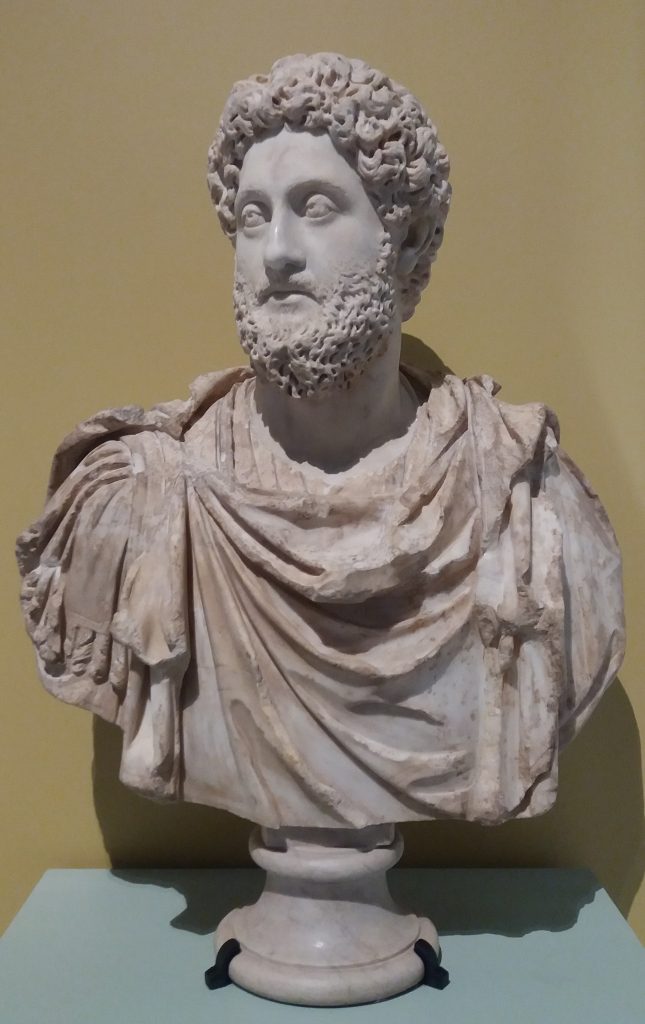
Recently Tucker Carlson, the bow-tie wearing paragon of journalistic courage, interviewed professional misogynist Andrew Tate. If you have never heard of Andrew Tate, consider yourself lucky, although perhaps a bit ill-informed. If you have a daughter (I do) you’d better acquaint yourself with the likes of Tate and his influential brand of oafish machismo. Tate, with millions of social media followers, is an abuser of women and mocker of decency posing as a defender of manhood. Tate is accused of rape and human trafficking in Romania and is certainly guilty of serial abuse of women, making Carlson’s sycophantic interview just that much more revolting. Going to Andrew Tate for advice on masculinity is about like going to Moloch for advice on childcare.
To be sure, there is something of a crisis of manhood. Richard Reeves has a recent book cataloging the many ways we are leaving boys and men behind. Males perform worse in school than girls, make up a smaller percentage of both undergraduate and graduate college students, are increasingly dropping out of the workforce, are suffering from drug and alcohol abuse at high rates. In many cases women in their twenties outearn men–although that pattern does not hold after thirty. One needn’t be a Tate-level blockhead to note that there are plenty of initiatives to get girls in science, girls in coding, girls in sports, girls in business…but nothing for boys. Indeed, it is true that males are often told that they are the problem, and they must conform to female norms.
Various women online have argued that if men don’t like the Andrew Tate version of masculinity they need to come to a defense of a healthy masculinity. One place to go is Jordan Peterson. Now, to say the least, Peterson holds some quirky beliefs. But his basic advice in his 12 Rules for Life and Beyond Order: 12 More Rules for Life is quite sound. Who can argue against such rules as “make friends with people who want the best for you,” “set your house in perfect order before you criticize the world,” “tell the truth—or at least don’t lie,” “do not do what you hate,” and “try to make one house in your home as beautiful as possible.” As young men have lost the script about what it means to be a man, with society giving them very little guidance, a young man could do far worse than become a Peterson acolyte. One problem with Peterson on these matters, however, is that he operates almost purely from the standpoint of power. Peterson’s whole schtick is about becoming a master of your own will so as to gain greater command of your life, to get what you want. I can imagine much worse theories. At least Peterson is preaching discipline and responsibility. But something seems to be missing.
Let me turn, then, to a different take on masculinity. I steal this from a Catholic speaker, Sean Dalton, whom I heard many years ago. He directed his audience to a famous scene in the movie Gladiator. The main character, Maximus, has been condemned to death by the usurping emperor Commodus, who has gained power by murdering his father, Marcus Aurelias (reminder: don’t go to Hollywood for good history). Maximus escapes and becomes a gladiator. Back in Rome, he performs great feats in the Coliseum. As Maximus is disguised under a helmet, Commodus demands to know who this gladiator is. In a dramatic revelation, Maximus throws off his helmet and declares, “My name is Maximus Decimus Meridius, commander of the Armies of the North, General of the Felix Legions and loyal servant to the true emperor, Marcus Aurelius. Father to a murdered son. Husband to a murdered wife. I will have my vengeance in this life or the next!”
Now that’s moviemaking! Dalton’s point is that Maximus defines himself by the duties he fulfills. His identity isn’t how much money he can make, how cool his car is, how many women he can bed, how many social media followers he can gain. He is a general, a servant, a father, and a husband. He is defined by his obligations and duties. He does not aggrandize himself. Any glory he gets is by fulfilling his duties to those to whom he is responsible. He isn’t trying to impose his will. He is trying to do the will of others in accordance with justice.
No one will accuse Maximus of being a metrosexual or an emasculated modern man. If anyone in the film matches this description, it is the obscene Commodus. In fact, if Andrew Tate takes after any character in the film, it is the weak, insecure, libidinous Commodus. If Commodus lived today, he’d be the guy driving a souped-up Camaro with loud, vulgar hip-hop music blaring from his speakers, all to hide his pathetic inadequacy. This is distinct from Maximus who does his job without fanfare, directs honor away from himself, and defines himself by the responsibilities he fulfills, not the things or people he can possess.
Maximus is defined by self-sacrifice, by love. He gives of himself so that others may prosper. Let us jettison the notion that love is an emotion or a sentiment. One doesn’t love one’s spouse when they are most attractive, but when they are the least. One shows love for one’s children not when they are cute (that’s easy) but when they are breaking your things and pooping their pants. We must love our family (and others) when we do what we must, even when it is unpleasant or simply unfun.
We like to explain away the weird in scripture, and those passages in Ephesians 5 about wives and husbands make modern Bible readers feel all funny inside. This is probably not the space to tackle the whole “wives submit to husbands” weirdness, but note that men are called to “love your wives, as Christ loved the church and gave himself up for her.” Christ didn’t turn the church into a business opportunity. Christ died for the church. Again, the Andrew Tate’s of the world have more in common with the demons tempting Christ in the dessert than with actual manly men.
One doesn’t want to overread a Hollywood movie, but it strikes me that Maximus is a good model for men, with the addition of explicit Christian charity that Gladiator leaves implicit. It takes a lot of skill, work, effort, and mastery to be a good servant. It is a man’s work.

Just a minor detail, but Tucker Carlson ceased his bow-tie affectation nearly twenty years ago (17 to be precise).
John Haas is the most careful CURRENT reader on the planet!
Nothing escapes my eagle eye.
Actually, I was dimly aware he didn’t wear bow ties anymore–perhaps symbolic that he’s no longer aspiring to be the next Gearge Will, but something more radical and populist? Or, maybe his wife just told him it made him look like a preppie? Anyway, I Googled, and yes, even that information is available on the internet. What a blessing it is …